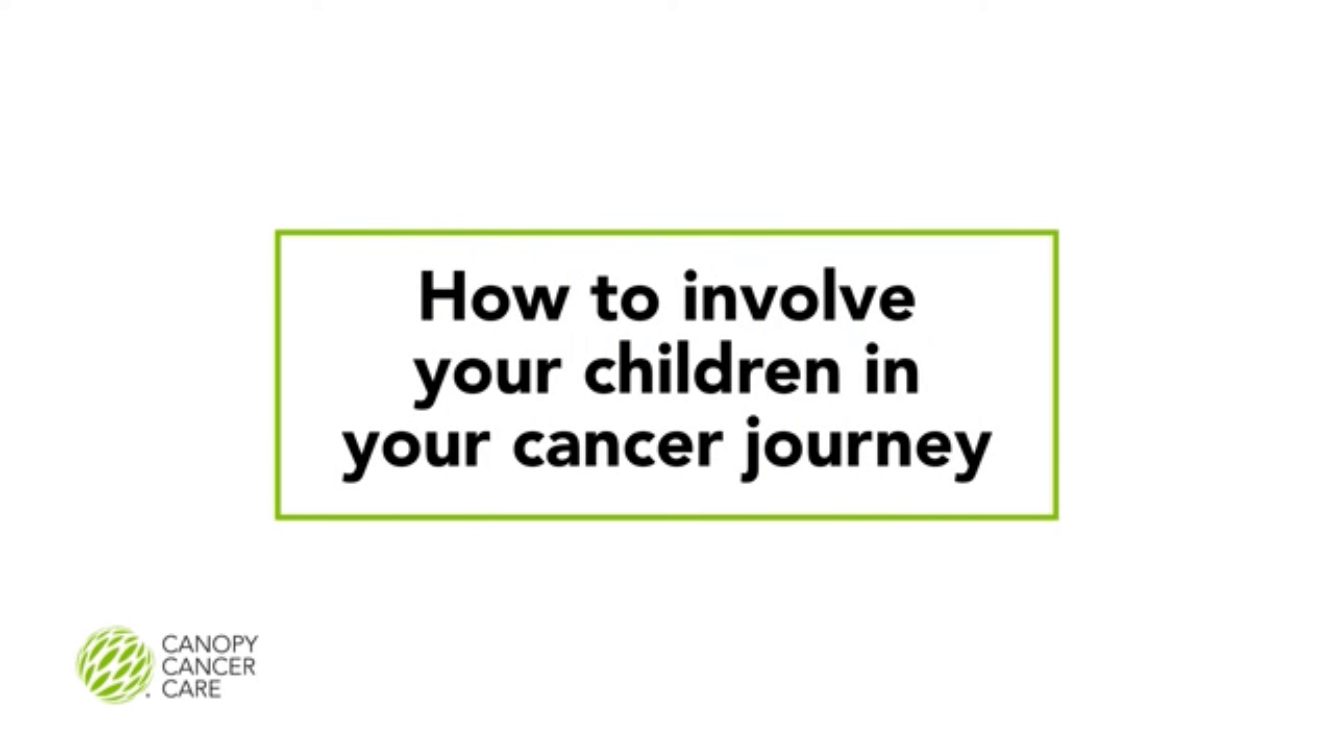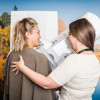
Talking with Children and Teens about Cancer
One of the first thoughts many people have after being diagnosed with cancer is: “how do I tell my children?”
Our natural instinct is to protect our children, so telling them about a cancer diagnosis can be really tough but it’s an important and necessary thing to do. There is no right or wrong way to do this and like most of parenting you will know what feels right for your children and family.
Ideally, children should be told as soon as possible after your diagnosis and you have information you can share with them about treatment understand what your treatment might involve. Children can be incredibly observant about what is happening around them and can often sense when something is wrong, or if they’re not being told something important. Children, of every age, have very active imaginations and if they don’t have the right information, they can start to fill in the gaps and make up stories in their own minds.
How much you tell your children is going to be completely dependent on their age and their ability to understand the information you share with them.
Pre-schoolers don’t need a lot of detail. It’s likely that they’ll focus on the symptoms and any visual side-effects such as hair loss, rather than on what is happening inside of you. It could be useful to use a soft-toy or picture to show your pre-schooler where the cancer is located inside of you. One of the most important things to remember to tell them is that cancer isn’t contagious so they can’t catch it from you.
If you are talking to younger school age children, you may need to keep the conversation brief and use simple words. Similar to pre-schoolers, they’re likely to focus on the visible side-effects of your cancer and want to know about what’s happening right now. Be prepared for them to continue carrying on playing as though they’re unaffected by your news; younger children may react later or show their response through different behaviours such as being angry or unusually quite rather than using words. They may also have some knowledge about cancer and what it means; this will allow you to have a more in-depth conversation about your treatment and what to expect.
Teenage children are different again. They will have a greater level of knowledge about cancer and as a result may be more worried about you and the family. They will want specific information and know about the ‘now’ and the future. They may be worried that by asking too many questions they will upset you so it’s important that when the opportunity arises, you share relevant information with them, answer any questions they have and try and get them to talk about their feelings. Ask them for their opinions and, if possible, let them help you make decisions.
Teens may want to talk to someone else about your cancer, it’s important to encourage them to talk to people they trust as close friends and family can be a great source of support to them.
Regardless of the age of your children, they need to know they can talk to you at any time and that it’s OK to ask questions. You will need to be prepared to answer some fairly tough questions; and should be prepared for them to ask, “are you going to die?”
The thought of having to answer this question can cause a high level of anxiety for most parents because they don’t know what to say or how their children might react to the discussion. You could say something like "Some people do die from cancer, but lots of people don't. I am not dying; I am going to take some very strong medicine and/or have surgery to get rid of my cancer and I will be checked often by the doctors."
Here’s a helpful list of what to consider including in your discussion with your children and teens:
- You are not responsible for the cancer
- You can't catch cancer from me
- It's okay to sometimes feel angry, sad or scared.
- You are loved and always be
- You will always be cared for, no matter what.
- You can continue to live a normal life.
Remember, when you talk to your children about your cancer it is just the first of many conversations and you will have the opportunity to revisit all the important information as often as necessary. The important thing is that by including your children in your discussions, you let them know they are part of this journey and that you are open to hearing their questions and opinions, and will answer them honestly.
In our Canopy TV episode “Involving Children” we spoke with two patients about the way they told their children and how they involved them in their cancer journey. Both Trish and Suz chose to talk to their kids about their cancer once they had an idea of the way forward and could share more information with them about treatment and outcomes.
















